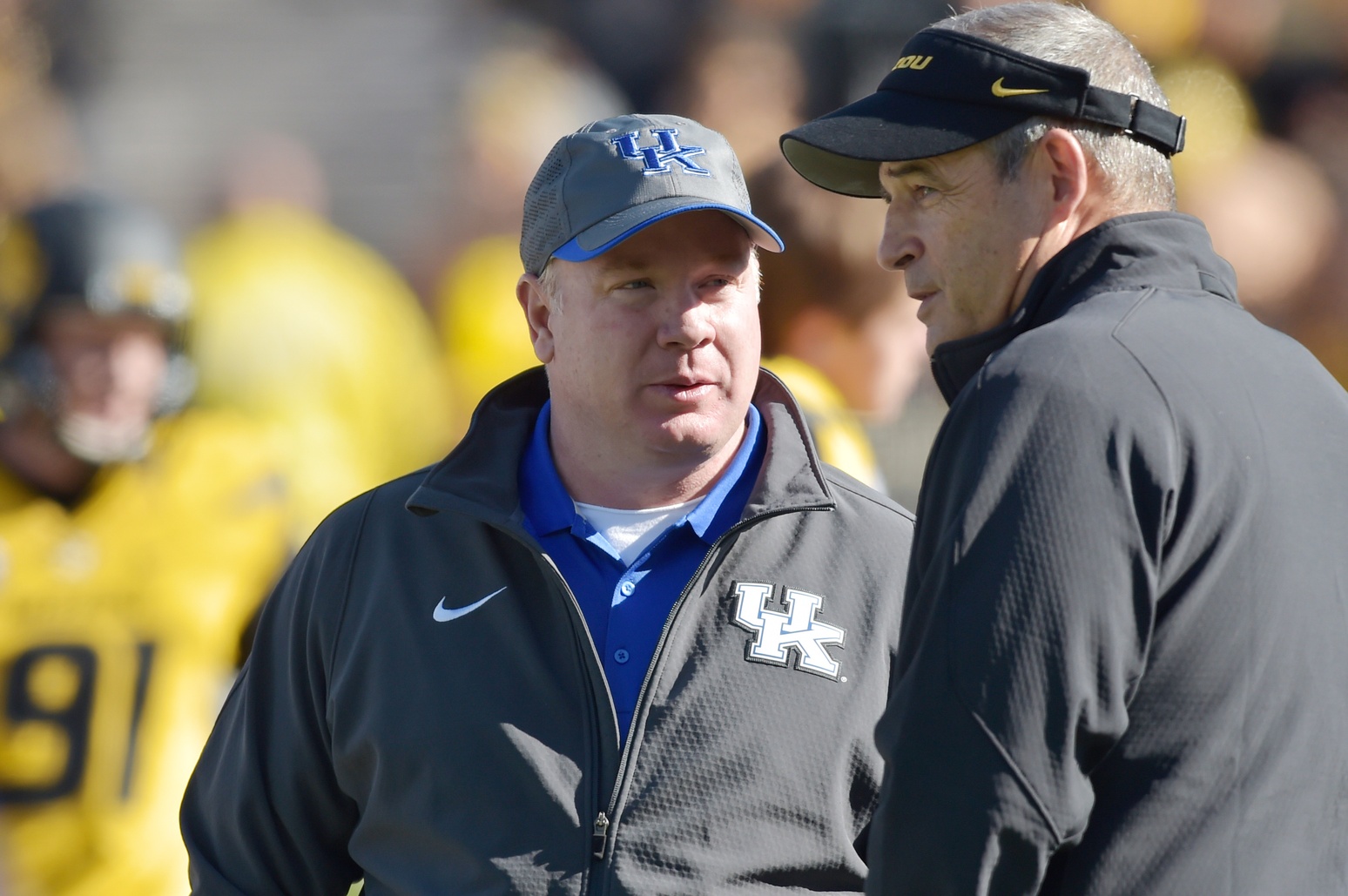
Go bowling with a 5-7 record? It can still happen for Mizzou, Kentucky
By Tom Brew
Published:
The countdown starts the first week of the season and grinds through three months, with the goal of getting six wins and earning a trip to a bowl game.
That’s the way it’s always been. Through the years, it’s always been a salute to mediocrity that 6-6 is good enough for a party at the end of the year.
But this year, as more and more bowl games pop up on the holiday register – can you say Nova Home Loans Arizona Bowl and AutoNation Cure Bowl? – we now have a need for 80 teams to be able to play in the postseason. Since there’s only 128 teams in FBS, it’s hard to fill all those spots.
For instance, heading into the final two weeks of the season, there are only 71 teams eligible so far – including 10 from the SEC. The bowls need nine more teams. There’s a chance it’ll all work out, but there’s also a pretty good it won’t.
The solution? A few teams are going to go bowling with a 5-7 record, now with the blessing of the NCAA.
That’s good news for SEC members Missouri and Kentucky. Both are 5-6 right now and can eliminate all doubt this weekend with victories over Arkansas and Louisville, respectively. But those are both tough spots. Finishing 5-7, based on the eye test for the Tigers and Wildcats, seems more realistic.
And will they go at 5-7? Sure, the Mizzou folks say.
“We’ve gone through a ton of adversity,” freshman quarterback Drew Lock said earlier this week. “To get to a bowl game after all this, that would be a big deal to show that we can overcome a lot of stuff.
“I think everyone would say yes in that (5-7) position. But obviously, it’s not what you normally want. You want to be a six-win team like all the credentials are supposed to be.”
The NCAA and bowl committees aren’t really prepared as to how to handle the 5-7 problem. Their first comments, according to ESPN sources, were to let the five highest-ranked teams in the Academic Progress Report (APR) rankings be allowed to fill those spots, more as a reward for academic success than superiority on the field.
But that first thought was a flop because those five top academic schools – Wisconsin, Duke, Northwestern, Michigan and Stanford – were all already bowl eligible. Plan B is needed, and that’s not even in place yet. The next schools with high APR scores and five wins so far – or still with a chance to get to five – are Nebraska, Rutgers, Indiana, Virginia Tech, Washington, Missouri, Kansas State and San Jose State.
Kentucky, with low APR numbers, is further down the list.
None of that might matter, of course, because 80 teams still might get to six wins anyway. But the option at 5-7 still remains.
Missouri coach Gary Pinkel is retiring at the end of the year because of health issues. He’s doesn’t even want to talk about the 5-7 scenario, preferring – as every coach would – to focus on beating Arkansas and getting a sixth win an bowl berth the right way. The 63-year-old said earlier this week that it would be up to athletic director Mack Rhoades whether or not the Tigers accept a bowl bid with a 5-7 record.
“I have not even thought about that,” Pinkel said. “I want to win the game. That’s where my focus is.”
It’s the same thing at Kentucky. Coach Mark Stoops is only focusing on beating Louisville and getting a sixth win that way. The Wildcats seemed like bowl locks early in the season when they started out 4-1. A five-game losing streak has them sweating out the final two weeks to get eligible, and he doesn’t even want to think about losing and then being rewarded with a bowl trip.
“I’d hate to comment on that. We desperately want to get six,” Stoops said at his final media availability of the week on Wednesday. “I don’t want you in here asking me those questions next week. I want to be in here talking about six. So, I don’t want to think about that.”
Certainly, no coach would say no to a bowl, if only for the extra few weeks of practice that come with playing in a bowl game.
“I would not for that very reason,” Stoops said. It would be a good practice time.”
For athletic department bean counters, going to a low-level bowl with a 5-7 record isn’t necessarily a good thing. Those bowl payouts usually don’t cover the cost of the trip. There’s also the issue of bowl bonuses for coaching. They can often be six figures, and many times high six-figures.
Last year, for instance, Pinkel received the biggest bonus of all college coaches ($900,000 according to the Associated Press) for winning the SEC East, playing in the SEC title game and the Citrus Bowl.
That’s a sizable budget consideration that goes along with 5-7 teams getting in. You’re not going to hear any campus accountants complain publicly, of course, but it’s still something the be aware of.
Tom Brew is an award-winning journalist and author who is covering SEC football for Saturday Down South.







